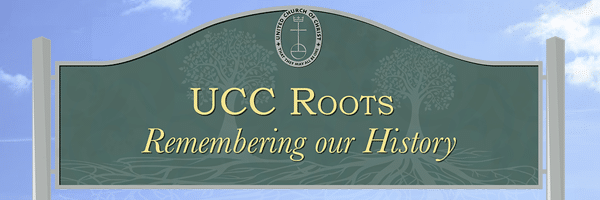James O’Kelly
 Revolution was in the air. Between 1775 and 1783 colonial settlers in America fought a war that created a new nation committed to liberty, freedom, and human rights. They also had new ideas about the church.
Revolution was in the air. Between 1775 and 1783 colonial settlers in America fought a war that created a new nation committed to liberty, freedom, and human rights. They also had new ideas about the church.
James O’Kelly (1735–1826) was born in North Carolina. He rejected the Church of England and was inspired by Methodist revival preaching. In 1784 he was ordained a Methodist and appointed district elder for churches in Virginia and North Carolina.
O’Kelly had been a soldier during the Revolution and was imprisoned by the British. After the War, his attitudes about government, slavery and church practices changed. In 1789 he wrote a radical anti-slavery tract entitled “An Essay on Negro Slavery.” It seems that in 1785, he freed a woman named “Dinah” who had been his slave.
For O’Kelly, slavery and all hierarchical systems were unacceptable. In 1792 he challenged how the Methodist Bishop assigned clergy to churches, arguing that clergy ought to have some say about where they served. His proposal was rejected.
In protest, O’Kelly and 19 other ministers withdrew from the Methodist Episcopal Conference and started calling themselves “Republican Methodists.” They had fought a war to replace their King with a Republic. They believed that the church needed to break free from ecclesial authority. O’Kelly wrote The Author’s Apology for Protesting against the Methodist Episcopal Government, articulating “republican” views of church rooted in scripture. Christ is the sole head of the church. Clergy and lay members should share decisions.
O’Kelly, and other like-minded Christians in the Midwest and New England, started hundreds of independent “Christian Churches.” They refused to act like a denomination. Yet in 1929-31 their passion for “unity” led them to partner with Congregational churches to create the “General Council of Congregational Christian Churches.” Several decades later, in 1957, they become part of the United Church of Christ.
Contributor: Sid Fowler
Related News
Bodily Autonomy Means Every-BODY
Advocacy and Action for Women's and Gender Justice Local events stir thoughts and...
Read MoreAn ally experiences PRIDE in the CLE
Advocacy and Action for Women's and Gender Justice Local events stir thoughts and...
Read MoreUCC Releases Menstrual Health Toolkit
Advocacy and Action for Menstrual Health and Justice Work with partners Church World Service...
Read More
